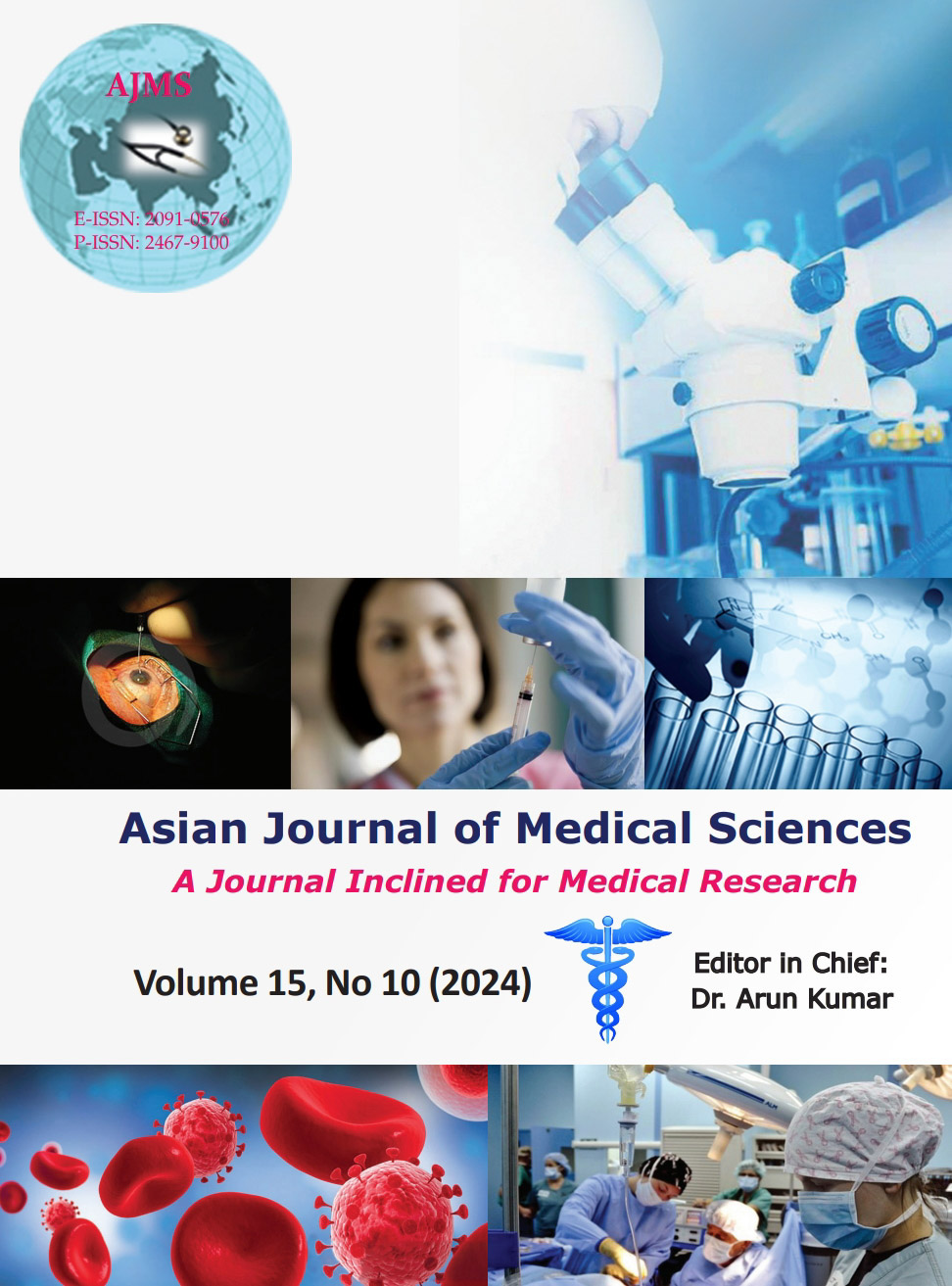Association between uric acid and cognitive function in maintenance hemodialysis patient
Keywords:
Uric acid; Cognitive; Hyperuricemia; Chronic kidney diseaseAbstract
Background: Chronic kidney disease (CKD) is an independent risk factor for cognitive dysfunction. Hyperuricemia is prevalent in CKD patients and has been associated with cognitive dysfunction. Hyperuricemia has been associated with an increased risk for cerebral microvascular disease.
Aims and Objectives: The study aimed to evaluate the association between uric acid level and cognitive function in maintenance hemodialysis patients.
Materials and Methods: The study was conducted on 90 maintenance hemodialysis patients. Serum uric acid (sUA) level was measured in patients on maintenance hemodialysis and cognitive performance was assessed by the Standardized Mini-Mental State Examination score.
Results: There was a significant association between sUA level and cognitive function in hemodialysis patients. Patient with higher sUA levels was found to have poor cognitive function (P<0.05). There was a significant negative correlation between sUA and cognitive function which revealed an increase in sUA will decrease the cognitive function (P<0.05). In our study, there was a significant association between sUA and cognitive function in hemodialysis patients. Patients with hyperuricemia had poor cognitive function.
Conclusion: In our study, there was a significant association between sUA and cognitive function in hemodialysis patients. Patients with hyperuricemia had poor cognitive function.
Downloads
Downloads
Published
How to Cite
Issue
Section
License
Copyright (c) 2024 Asian Journal of Medical Sciences

This work is licensed under a Creative Commons Attribution-NonCommercial 4.0 International License.
Authors who publish with this journal agree to the following terms:
- The journal holds copyright and publishes the work under a Creative Commons CC-BY-NC license that permits use, distribution and reprduction in any medium, provided the original work is properly cited and is not used for commercial purposes. The journal should be recognised as the original publisher of this work.
- Authors are able to enter into separate, additional contractual arrangements for the non-exclusive distribution of the journal's published version of the work (e.g., post it to an institutional repository or publish it in a book), with an acknowledgement of its initial publication in this journal.
- Authors are permitted and encouraged to post their work online (e.g., in institutional repositories or on their website) prior to and during the submission process, as it can lead to productive exchanges, as well as earlier and greater citation of published work (See The Effect of Open Access).




